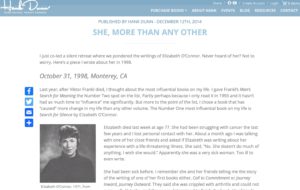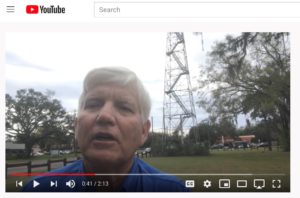How can one mountain hold so much grief and give back so much new life?
A flood of memories came back to answer that question.

“Schloss” is German for “castle”
In my blog and the video I posted last week, I talked about my recent backpacking trip to the summit of The Big Schloss with my future son-in-law. As I shared this story at my weekly men’s group meeting, one of the guys, who has known me for over 30 years, said, “Hank, didn’t you throw your wedding ring off that mountain?”
Well…yes. But there’s a bigger story.
In June 1996, my wife moved out the day after our 26th wedding anniversary. In the following months, I went through all the stages of dying or grief I have witnessed in my patients and their families while I was serving as their hospice chaplain. In the face of an unwanted divorce, I experienced denial, anger, and depression, along with a layer of a sense of betrayal and rejection. And like those families, I was waiting for the last breath, or in this case, a “Final Decree of Divorce” granted by a Fairfax County judge.
I imagined I would stand before a judge in a courtroom and hear them say, “It’s over.” But it didn’t happen that way.
My wife called me two days before the court date to let me know it was happening and asked if I wanted to be there. I said, “Not particularly, but do you have a preference?” She said she would rather I not be there, and it was so.
The court date was October 2nd, 1997. Months before, I had made plans with one of my best friends, James, to go on a one-night backpacking trip starting on October 1st. Destination? You guessed it: The Big Schloss.
A day for an ending and beginning
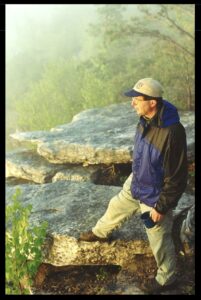 James had traveled from Atlanta to attend a workshop at the Lost River Retreat Center in West Virginia, only a few miles from the Schloss. I picked him up and drove to the trailhead. We walked the two miles up the mountain and set up camp near the summit.
James had traveled from Atlanta to attend a workshop at the Lost River Retreat Center in West Virginia, only a few miles from the Schloss. I picked him up and drove to the trailhead. We walked the two miles up the mountain and set up camp near the summit.
An excerpt from a piece I wrote about this at the time:
“The end came with a suddenness that did not allow me to plan how I wanted the day to go. What happened was better than anything I could have scripted.… What better way to start the last day of my marriage than with a good friend on a mountaintop, drinking coffee and watching the sunrise.
“We hiked the two miles into our campsite yesterday and set up camp near the summit. Last night, we sat by the fire and braced ourselves against the cold wind. We talked for hours. James slept in the tent, and I stayed outside so I could keep watching the stars all night long.

James at sunrise
“I woke up at first light and put a pot of coffee on the stove. James soon joined me, sitting on the rock on the edge of a cliff which drops perhaps a hundred feet to the ground below. The darkness was being weakened as the light grew. We sipped our coffee and ate pop-tarts…. This place, the Big Schloss, was home to me.
“James knew what this day meant to me. He mentioned it. We discussed it briefly. He read a Celtic prayer and a scripture. As the judge and my soon-to-be ex-wife were each preparing for their days, we were walking down the mountain. Someone to walk with me. What a wonderful metaphor! Too often, over these past sixteen months since she moved out, I have had a great sense of someone walking with me. Sometimes there was nobody with me, but I was not alone. Now James walked with me on the first day of a new life.”
The Ring Toss

Photo by eyestetix on unsplash
Fast-forward nineteen months to May 1999, and I prepared for yet another trip up the Schloss — this time with another friend who was attending the same workshop at the Lost River Retreat Center. She had told me about a ritual she did to help her process her own sense of grief and anger. She threw her wedding band from her failed marriage into the water off a ferry at the Outer Banks. Hmmm?
Yet again, I wrote of what happened next, this time in June 1999:
“A couple weeks ago, I had a little ritual to symbolize my moving on from my marriage. I was camping with a friend on my favorite close-to-home campsite, the Big Schloss, a rock outcrop on the Virginia-West Virginia border.…

Ritual site for the day of divorce and ring toss
“The air was so clear I didn’t even bring a tent, and we slept under the stars. I brought my wedding band, anticipating a ‘ring toss’ ceremony. After arising in the crisp May air, I took the ring out of my pack. This is the ring my wife had inscribed with the scripture reference for the passage ‘Wherever you go, I will go. Your people will be my people.…’
“I stood on the edge of the cliff, looking down at the trees and rocks below. I held the ring. I was surprised that I felt as emotional as I did. I thought this would be a mere formality, tossing the ring into the wilderness. But I threw it. Another little piece of letting go. It landed somewhere on the floor of an old-growth hardwood forest. The fall leaves will cover it in October, and the winter snows will pack it down further. Next spring, perhaps the dogwoods or redbud will bloom nearby. It’s going to be there for a long time to come.
“I was surprised by the tinge of sadness I felt at the prospect of tossing away this symbol of my marriage. I have been so happy in my alone life. I have a normalcy in the living of my days. I have no desire to be reunited with my ex-wife. So, what was the grief about?

These mountains absorb grief
“I have concluded that everyone experiences a certain amount of sadness and grief in response to any loss. If we have not completed our quota of grief, it will come out at a future date, and almost anything can set if off. So, I held this ring in my hand and got a little more of the sadness out. I won’t have that same exact piece of grief to do over again…that feels better.”
A quarter century has passed since those two events on the Big Schloss. The mountain is still giving me its gifts. I even put up a recent short video about how special this piece of God’s green earth is to me. This place has quite easily absorbed my grief. I’ll be back.
__________________
Author Chaplain Hank Dunn, MDiv, has sold over 4 million copies of his books Hard Choices for Loving People and Light in the Shadows (also available on Amazon).
Follow Hank: LinkedIn | Instagram | Facebook | YouTube

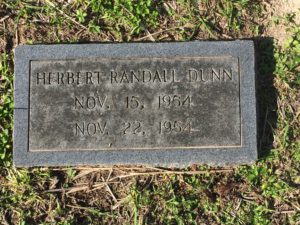 I had a brother who died a week after being born when I was six years old. It wasn’t until I was in my 40s that I asked my mother about Randy’s death. When I did, she burst into tears and said, “My father wouldn’t let me go to his graveside burial service.” I never knew she kept such grief just below the surface. I told this
I had a brother who died a week after being born when I was six years old. It wasn’t until I was in my 40s that I asked my mother about Randy’s death. When I did, she burst into tears and said, “My father wouldn’t let me go to his graveside burial service.” I never knew she kept such grief just below the surface. I told this 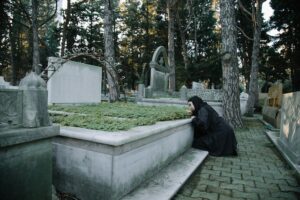
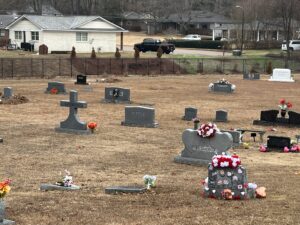 I’ve witnessed this type of grief firsthand. I was a nursing home chaplain; a co-worker lost a teenage son to a hit-and-run accident. She believed it was murder, but the driver was acquitted at trial. She, understandably, became obsessed with this loss. She even bought a house next to the cemetery so she could always look out on her son’s grave.
I’ve witnessed this type of grief firsthand. I was a nursing home chaplain; a co-worker lost a teenage son to a hit-and-run accident. She believed it was murder, but the driver was acquitted at trial. She, understandably, became obsessed with this loss. She even bought a house next to the cemetery so she could always look out on her son’s grave. I was leaving on one of my daily bike rides recently and needed to pick a new book to listen to. I selected a reread —
I was leaving on one of my daily bike rides recently and needed to pick a new book to listen to. I selected a reread —  “No one ever told me that grief felt so much like fear. I am not afraid, but the sensation is like being afraid.”
“No one ever told me that grief felt so much like fear. I am not afraid, but the sensation is like being afraid.” “It is incredible how much happiness, even how much gaiety, we sometimes had together after all hope was gone.”
“It is incredible how much happiness, even how much gaiety, we sometimes had together after all hope was gone.” 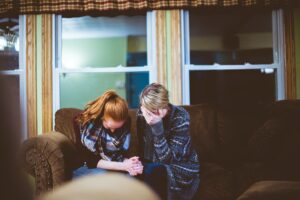


 This is how David Brooks starts a recent
This is how David Brooks starts a recent 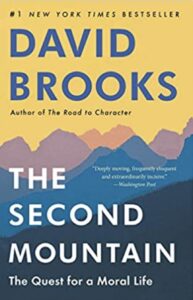 Gradually, for some people, a new core narrative emerges answering the question, “What am I to do with this unexpected life?” It’s not that the facts are different, but a person can step back and see them differently. New frameworks are imposed, which reorganize the relationship between the events of a life. Spatial metaphors are helpful here: I was in a dark wood. This train is not turning around. I’m climbing a second mountain.
Gradually, for some people, a new core narrative emerges answering the question, “What am I to do with this unexpected life?” It’s not that the facts are different, but a person can step back and see them differently. New frameworks are imposed, which reorganize the relationship between the events of a life. Spatial metaphors are helpful here: I was in a dark wood. This train is not turning around. I’m climbing a second mountain. I’ve had the opportunity to officiate many funerals over the years. This was supposed to be one of the “easy” ones. The dead man’s family had a relative who once was a member of my church in Vienna, Virginia, back in the day. None of the family attended that church now — or any church. So, when the man died suddenly of a heart attack at 64, they turned to us for a minister to conduct the service — kind of a rent-a-preacher.
I’ve had the opportunity to officiate many funerals over the years. This was supposed to be one of the “easy” ones. The dead man’s family had a relative who once was a member of my church in Vienna, Virginia, back in the day. None of the family attended that church now — or any church. So, when the man died suddenly of a heart attack at 64, they turned to us for a minister to conduct the service — kind of a rent-a-preacher.
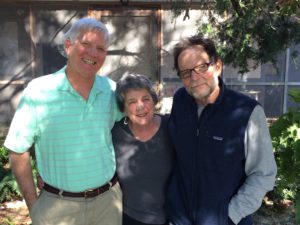
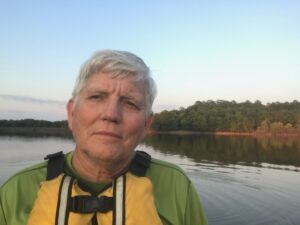
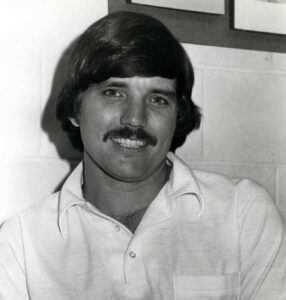

 The story is about loss and backpacking, two abiding interests in my life. I’d probably write favorably of anyone who takes their grief on a 1,100-mile backpacking trip. Cheryl Strayed did and wrote about it.
The story is about loss and backpacking, two abiding interests in my life. I’d probably write favorably of anyone who takes their grief on a 1,100-mile backpacking trip. Cheryl Strayed did and wrote about it.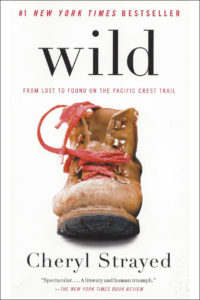 There are many moving passages in the book, but I was caught by one line on the next-to-last page of the book. Cheryl touches the bridge on the Columbia River, the site at the end of her journey. She walks back to an ice cream stand to buy herself a treat with the last two dollars she has to her name. She enjoys her ice cream, chatting with a lawyer from Portland who stops for ice cream, too. She says goodbye to him and
There are many moving passages in the book, but I was caught by one line on the next-to-last page of the book. Cheryl touches the bridge on the Columbia River, the site at the end of her journey. She walks back to an ice cream stand to buy herself a treat with the last two dollars she has to her name. She enjoys her ice cream, chatting with a lawyer from Portland who stops for ice cream, too. She says goodbye to him and